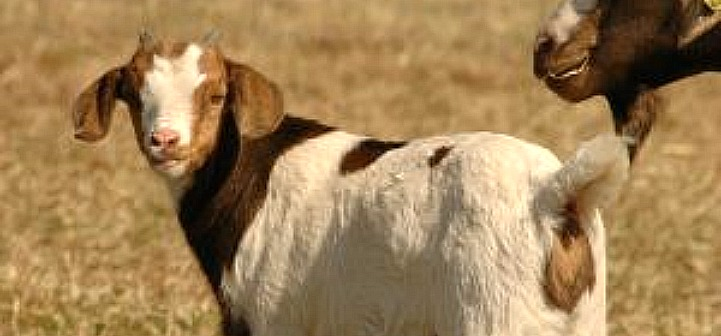By: Dr. Ken Andries, Extension Animal Science Specialist
Kentucky State University
Healthy goats will eat well, chew their cud, have a shiny hair coat, strong feet and legs, be sociable, and have bright and clear eyes. To prevent health problems producers need to develop a good herd health program that includes proper nutrition, a clean well ventilated environment, kid processing, and keeping a vaccination schedule. The first step is to purchase animals that are healthy and from a herd with a good health program. Then, work with your veterinarian to develop a vaccination and deworming program for your herd.
Some common issues in developing a health program are listed below.
Kid Processing:
- Dip or spray the navel with 7% iodine at birth.
- The kid must receive a minimum of 2 oz of colostrum within the first 6 hours and 4 to 6 oz more within 24 hr of birth. Colostrum contains antibodies from the doe that provide protection to the newborn from many diseases until their immune system becomes active in a few weeks.
- Use colostrum from the kid’s own mother if possible or from other does in your flock is best. The next best choice is from a farm close to yours. Colostrum can be frozen, so you may want to work with a goat dairy to collect and store some at the beginning of the kidding season. Colostrum replacements are available as a last resort.
- Proper nutrition and vaccination of the doe before kidding insures high quality and quantity of colostrum at birth
- Give kids a Se shot at birth to help prevent white muscle disease (only in Se deficient areas).
Common Health problems
- Enterotoxemia type C and D and tetanus – vaccination for entrotoxemia and tetanus once a year for adults and kids at 4 weeks and a booster given at 8 weeks.
- Internal parasites – deworming your animals as needed during the year and 2 weeks before kidding.
- Coccidiosis is generally a problem that strikes young animals, but can affect animals of all ages, during periods of stress. This disease causes scours (diarrhea) in goats. The most common method of control is to include a coccidiostat in the feed or minerals. To treat consult, your veterinarian for products and doses.
- Foot scald/rot – Trim feet every 6 to 8 weeks if you have problems, trim more often. Use a foot bath with zinc or copper sulfate or individually treat the feet with Iodine or hydgron peroxide to help control the infection and give a shot of antibiotic, consult your veterinarian for proper treatment and dosage. Antibiotics can also be used topically to help treat foot scald. A foot bath with a 10% solution of either copper sulfate or zinc sulfate is used to treat the herd and help prevent spread.
Be sure to keep a record of all vaccinations and treatments of your animals. Read and follow all label directions when giving any product to your animals. Observe the slaughter and/or milk withdraw time on the label before marketing animals or consuming their milk. Keep your veterinarian informed and involved with your herd and health programs. Remember that only your veterinarian can recommend any product different than the label directions.
